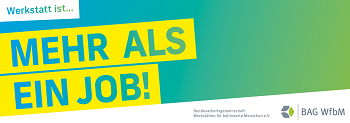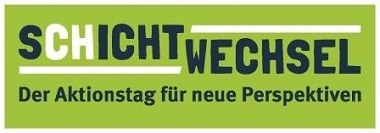On 13 November 2008, the debate on the draft resolution on supported employment has been concluded. In comparison to the original proposal, the Committee on Labour and Social Affairs recommended several changes.
More specifically, days of individual training in a company are to be taken into account only to 50%. They can no longer be completely deducted from the duration of the vocational training (paragraph 40, section 4 of German Code of Social Law, Book IX, decision recommendation).
In special cases, the duration of individual training in a company can be extended from two to three years. More precisely, the qualification period can be prolonged “if the desired sustained success cannot be achieved otherwise, due to the nature or severity of the disability”. Further qualification has to result in an employment subject to social insurance contribution (paragraph 38a section 2, p. 4 German Code of Social Law, Book IX, decision recommendation).
As far as funding is concerned, integration offices shall receive a larger share of the revenue from the compensatory levy. Their share is to be increased by 10% from 70% to 80% (Paragraph 36 p. 1 Compensation tax regulation for severely disabled persons).
These changes in the decision recommendation reflect suggestions that were part of the BAG: WfbM statement on that topic.
In addition, the situation of permanently outsourced workplaces has been clarified and introduced into the new law. As a consequence, workshops for adapted work can now offer outsourced workplaces in the vocational training section as well as permanently outsourced workplaces in the working section (Paragraph 136 section 1 p. 5, 6 German Code of Social Law, Book IX, decision recommendation).
The text of the recommendation states: “Outsourced workplaces on the open labour market are part of the vocational training and working opportunities offered by workshops for adapted work. Outsourced workplaces can help in reaching the goal of an employment on the open labour market, but can also be a permanent solution.”
Moreover, integration services are explicitly mentioned as responsible organisations for supported employment (Paragraph 38a section 5 p. 1, 2 German Code of Social Law, Book IX, decision recommendation).
An additional innovation of the law is possibility of rehabilitation organisations issuing joint recommendations on the scope of the proposed services (Section 38a para 6 p. 2 German Code of Social Law, Book IX, decision recommendation).
Who we are
Bundesarbeitsgemeinschaft Werkstätten für behinderte Menschen e. V. (BAG WfbM) is the political representative of sheltered workshops in Germany. We represent 93 % of all German workshops. All public welfare organisations and religious denominations work jointly in our organisation.
Our task is to give expert advice on questions related to employment, vocational training, financing and legal issues. Additionally, we are actively involved in the legislation process. BAG WfbM promotes for the participation of persons with disabilities in working life.
Our task is to give expert advice on questions related to employment, vocational training, financing and legal issues. Additionally, we are actively involved in the legislation process. BAG WfbM promotes for the participation of persons with disabilities in working life.
































